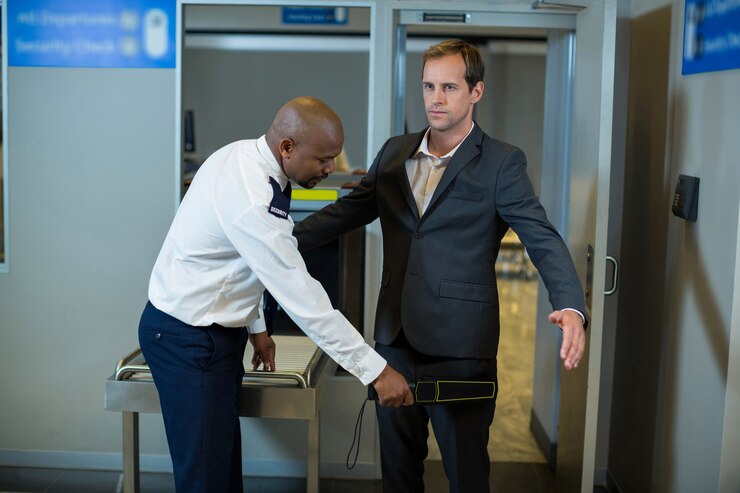Introduction to Armed Security Guards
Armed Security Guards play a crucial role in safeguarding various establishments, ranging from banks and corporate offices to events and residential complexes. Unlike their unarmed counterparts, armed guards are equipped with firearms and undergo specialized training to handle high-risk situations effectively.
Importance of Armed Security Guards
Enhancing Security Measures
Armed security guards significantly enhance security measures by providing a visible deterrent to potential criminals. Their presence alone can discourage unlawful activities, contributing to a safer environment for employees, customers, and residents.
Providing Rapid Response
In emergencies such as robberies or active shooter situations, armed guards can swiftly respond to neutralize threats and protect lives. Their training equips them to handle firearms proficiently and make split-second decisions under pressure.
Qualifications and Training Requirements
Basic Qualifications
To become an armed security guard, individuals must meet specific qualifications, including background checks, drug screenings, and obtaining the necessary licenses or permits to carry firearms legally.
Specialized Training
In addition to basic qualifications, armed guards undergo rigorous training programs to develop skills in firearms handling, threat assessment, crisis management, and de-escalation techniques. These programs ensure that guards are well-prepared to handle diverse security challenges effectively.
Roles and Responsibilities
Deterrence of Criminal Activities
One of the primary responsibilities of armed security guards is to deter criminal activities through their presence and proactive patrolling. By maintaining vigilance and enforcing security protocols, they create a secure environment that discourages potential threats.
Protection of Assets and Individuals
Armed guards are tasked with protecting assets such as cash, valuable merchandise, and sensitive information, as well as ensuring the safety of employees, clients, and visitors. They are trained to assess risks and take appropriate actions to mitigate them.
Advanced Training Programs
Tactical Firearms Training
Advanced training programs for armed guards often include tactical firearms training, focusing on marksmanship, weapon retention, and tactical maneuvers in various scenarios. This training enhances their ability to respond effectively to armed threats while minimizing collateral damage.
Defensive Driving Courses
In addition to firearms training, armed guards may undergo defensive driving courses to enhance their mobility and response capabilities. These courses teach defensive driving techniques and vehicle tactics to navigate safely through potential threats.
Technology Integration
Surveillance Systems
Armed security guards leverage advanced surveillance systems, including CCTV cameras and motion sensors, to monitor premises and detect suspicious activities. These technologies complement their physical presence and provide valuable intelligence for threat assessment.
Communication Devices
Effective communication is essential for coordinated security operations. Armed guards utilize communication devices such as two-way radios or earpieces to stay connected with their team members and emergency response personnel.
Cost Considerations
Factors Affecting Costs
The cost of hiring armed security guards varies depending on factors such as the level of training required, the number of guards needed, and the duration of security services. Additional expenses may include equipment, insurance, and licensing fees.
Value Proposition of Armed Security
Despite the higher cost compared to unarmed security services, the value proposition of armed security guards lies in their ability to provide enhanced protection against serious threats and mitigate potential losses resulting from criminal activities.
Hiring Armed Security Guards
Choosing a Reputable Security Agency
When hiring armed security guards, it’s crucial to choose a reputable security agency with a proven track record of professionalism and reliability. Conducting thorough background checks and verifying credentials can help ensure the quality of service provided.
Interview Process
During the interview process, clients should assess the qualifications, experience, and demeanor of prospective armed guards to determine their suitability for the assignment. Clear communication of expectations and responsibilities is essential for establishing a successful security partnership.
Conclusion
Armed Security Guards equipped with advanced training and technology play a vital role in protecting assets and individuals from security threats. Their presence not only enhances security measures but also provides peace of mind for businesses and communities. By investing in qualified armed guards and integrating them into comprehensive security strategies, organizations can mitigate risks effectively and maintain a safe environment for all stakeholders.
FAQs
- What qualifications are required to become an armed security guard?
- Basic qualifications typically include background checks, drug screenings, and obtaining the necessary licenses or permits to carry firearms legally.
- What specialized training do armed guards undergo?
- Armed guards undergo rigorous training programs in firearms handling, threat assessment, crisis management, and de-escalation techniques to handle diverse security challenges effectively.
- What is the value proposition of hiring armed security guards?
- Armed security guards provide enhanced protection against serious threats and contribute to the deterrence of criminal activities, mitigating potential losses for businesses and communities.
- How do armed guards integrate technology into their security operations?
- Armed guards leverage advanced surveillance systems and communication devices to monitor premises, detect suspicious activities, and coordinate security responses effectively.
- What factors should be considered when hiring armed security guards?
- Clients should consider factors such as the reputation of the security agency, the qualifications and experience of the guards, and clear communication of expectations during the hiring process.


